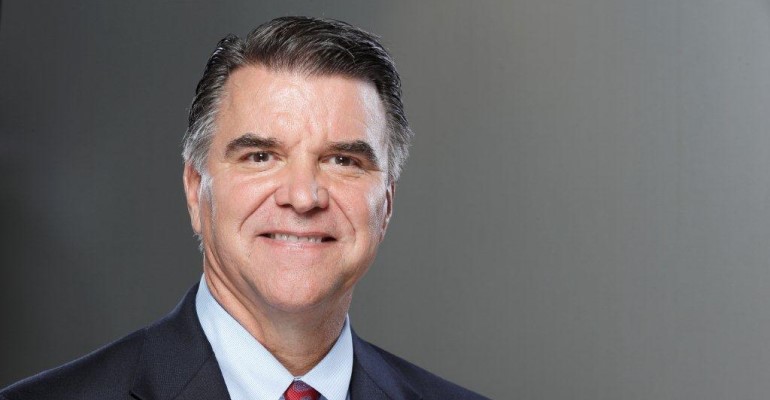
President-elect Joe Biden says addressing climate change is one of his top one or two priority issues, and naming John Kerry as his “special presidential envoy for climate” solidifies the White House focus on climate in a cabinet-level position. It is no longer a question of whether climate legislation or actions from the executive branch will occur, but rather when they will occur.
In the past, climate legislation has failed largely because the agriculture and forestry industries weren’t unified and didn’t have a seat at the table. Now, not only are they at the table, but they’ve created viable solutions to ensure they’re not on the menu. The Food & Agriculture Climate Alliance was formed and now stands ready to have a comprehensive plan with more than 40 recommendations in place as discussion heats up on Capitol Hill and with a new administration coming in.
“We want to be a part of that discussion, rather than outside of the room hoping and praying they don’t do something horrible to us,” says Chuck Conner, president and CEO of the National Council of Farmer Cooperatives. “That just has not been a very good strategy for a long time.”
Agricultural producers have often approached the discussion of climate change with hesitation, and Conner says he’s shared that hesitation, especially with some of the crazy ideas suggested by far-left members of Congress that would be devastating to U.S. agriculture.
Conner, FACA co-chair, on behalf of NCFC represented one of the initial agricultural industry groups to join the Environmental Defense Fund over a year ago to find common ground on how to mitigate the impacts of changing weather. The focus quickly turned to science-based, voluntary incentive-based changes on the farm that also promote resiliency long-term. It also must meet the fundamental test of not taking money out of the pockets of farmers. The policy recommendations cover six areas of focus: soil health, livestock and dairy, forests and wood products, energy, research and food loss and waste.
“We now have a comprehensive plan in place to address a lot of concerns and do so in a way that is cooperative and not confrontational. This really enhances our chances in prevailing here in a way that is positive,” Conner adds.
Related: Unlikely bedfellows unite on ag climate policy
The American Farm Bureau Federation and National Farmers Union joined EDF and NCFC and began quietly working on the common threads of how to address climate policy that allowed agriculture to be a partner in finding solutions. The alliance has since expanded to include FMI – The Food Industry Association., National Alliance of Forest Owners, National Association of State Departments of Agriculture and The Nature Conservancy.
Callie Eideberg, EDF director of government relations, says that initial core group was kept small intentionally. “We wanted to give ourselves the space to be thoughtful and creative without negativity,” she says.
Eideberg states environmental groups learned the hard way that the attempt over 10 years ago in the House on cap and trade policy failed without agricultural support. “[Environmental groups] tried to write perfect policy and then hand it to other interests and stakeholders and ask, ‘What do you need to support this?’ That’s not how you write good policy.”
In recent years, EDF has worked cooperatively with agricultural groups in researching the economics behind actions that can sequester carbon. EDF recognizes many of the systematic challenges in greater adoption in practices comes down to economics for farmers.
Eideberg says whether a producer believes in climate change or is just affected by the increased weather extremes of drought and excessive moisture, the policies recommended make a lot of sense for farmers’ bottom lines as well as improving environmental outcomes.
Strong policy behind actions
Eideberg says EDF recognized early on in the agricultural space that the federal government and federal policy can be an extremely powerful driver in encouraging adoption. “We need strong federal policies to push and pull and to make sure as a country we are ready to combat climate change, including farmers who have all these tools out there.”
Rob Larew, FACA co-chair and NFU president, says the policy will not be included in any single vehicle moving on Capitol Hill, but the beauty of the alliance is an ongoing effort by those involved to work the policy recommendations into specific proposals that do begin to move. The alliance is not only engaging with the House and Senate but also talking to Biden’s transition team on a “number of priorities they have which align with these recommendations.”
Another FACA policy recommendation includes a USDA-led Commodity Credit Corp. carbon bank that would establish a price floor for carbon sequestration and greenhouse gas reductions. Larew says Biden has already listed the carbon bank as a priority, and it could be accomplished administratively.
Other components of the policy could find their way into some kind of economic recovery package or could also get included in the next farm bill.
Conner says the recommendations and additional members could be added moving forward, but the strength of the alliance includes the broad representation to agree on key priorities especially as it appears imminent of legislative attempts to address the climate.
Eideberg adds, “If you’re not at the table, you’re on the menu. If farmers want to be part of the solution, then they need to be part of the discussion. This alliance allows farmers to be part of that conversation.”
About the Author(s)
You May Also Like






